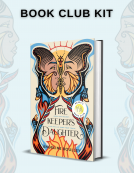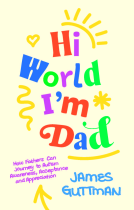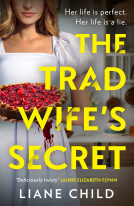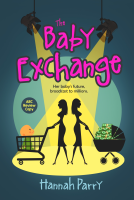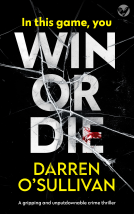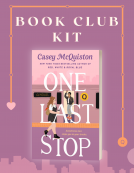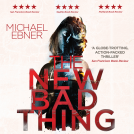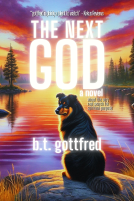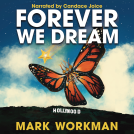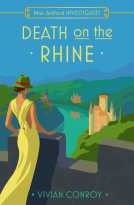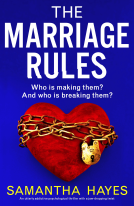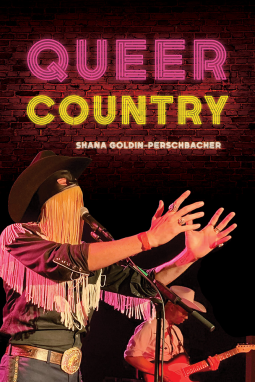
Queer Country
by Shana Goldin-Perschbacher
This title was previously available on NetGalley and is now archived.
Send NetGalley books directly to your Kindle or Kindle app
1
To read on a Kindle or Kindle app, please add kindle@netgalley.com as an approved email address to receive files in your Amazon account. Click here for step-by-step instructions.
2
Also find your Kindle email address within your Amazon account, and enter it here.
Pub Date 22 Mar 2022 | Archive Date 1 Jul 2022
Talking about this book? Use #QueerCountry #NetGalley. More hashtag tips!
Description
Searching for a place within country and Americana music
Though frequently ignored by the music mainstream, queer and transgender country and Americana artists have made essential contributions as musicians, performers, songwriters, and producers. Queer Country blends ethnographic research with analysis and history to provide the first in-depth study of these artists and their work. Shana Goldin-Perschbacher delves into the careers of well-known lesbian artists like k.d. lang and Amy Ray and examines the unlikely success of singer-songwriter Patrick Haggerty, who found fame forty years after releasing the first out gay country album. She also focuses on later figures like nonbinary transgender musician Rae Spoon and renowned drag queen country artist Trixie Mattel; and on recent breakthrough artists like Orville Peck, Amythyst Kiah, and chart-topping Grammy-winning phenomenon Lil Nas X. Many of these musicians place gender and sexuality front and center even as it complicates their careers. But their ongoing efforts have widened the circle of country/Americana by cultivating new audiences eager to connect with the artists’ expansive music and personal identities.
Detailed and one-of-a-kind, Queer Country reinterprets country and Americana music through the lives and work of artists forced to the margins of the genre's history.
Shana Goldin-Perschbacher is an assistant professor of music studies in the Boyer College of Music and Dance at Temple University.
Advance Praise
"At this unprecedented moment when queer artists dominate the Americana Awards nominations, Shana Goldin-Perschbacher's Queer Country arrives offering a timely, necessary, and radically fresh perspective on roots music--as a space for expression of sincerity by queer and trans artists."--Nadine Hubbs, author of Rednecks, Queers, and Country Music
Available Editions
| EDITION | Other Format |
| ISBN | 9780252086335 |
| PRICE | US$24.95 (USD) |
| PAGES | 288 |
Links
Featured Reviews
 Aiya M, Reviewer
Aiya M, Reviewer
I really enjoyed this book. It’s short and sweet and packed with information. I learned about a bunch of new country artists and songs to add into my playlist (I’ve been listening to Fancy by Bobbie Gentry on repeat since I finished the book).
I was so obsessed with this book that when the person I was with put on a movie I wasn’t enjoying, I straight up pulled my book out and read it until the movie was over. Let me tell you, it was much better than the movie.
Queer country artists are dominating the Americana Awards and the people’s favor for the first time ever, with Lil Nas X’s Old Town Road at the forefront of the public’s knowledge of queer country music. Joy Oladokun is releasing new music every time I turn around.
Anyone who enjoys history, music, and queer stories will enjoy this book. I can’t recommend it enough.
 Reviewer 912809
Reviewer 912809
Thank you to Netgalley and the author for the opportunity to read and review this book. I loved, loved, loved this book and here’s why.
For context:
As someone who grew up queer in the Deep South and who now lives elsewhere, I have always chaffed at the way many of my peers treat country music and their wholesale rejection of it. The number of times I’ve heard, “I’ll listen to anything but country,” is innumerable. Because so many of the major country stars are republicans, the genre is quite frequently ignored and criticized by white, liberal, coastal elites who, quite frankly, don’t know what they’re talking about..
As I said, I grew up queer in the Deep South but not only that, I grew up in a household which listened to “Old Country,” as my father used to call it. Old Country is flush with extremely talented, anti-establishment, leftist, working class, and diverse singers that often get drowned out in the contemporary music industry which prioritizes wealthy, white, cishet performers.
Book Review:
So when I saw this book on Netgalley, I knew I had to read it. And I was not disappointed! This book is a triumph and an testament to the diversity and inclusivity of the country music genre. A quote attributed to Orville Peck sums up my feelings quite well, “…oh this music is for well-adjusted, straight white men of whatever. And I actually disagree. I think that it’s meant for people who feel like freaks,” (pg. 184).
Peck is absolutely correct, and the author does an amazing job of illustrating the history of and reasons why country music originated in marginalized communities and has continued to be so important to them. This book was wonderfully inclusive and provided in depth explanations and analyses of queer and trans country singers and their music.
One concern I had going into this book was that the author might fail to acknowledge the role Black people had and continue to have in the creation and continuation of the genre. So often, Black artists are intentionally ignored in narratives about country music. Thankfully that was not at all the case in this book. The author centers the role of Black artists and spends a lot of time discussing Black and Black Queer country artists. Chapter 4 explores appropriation and (mis)representation in the genre which is something too frequently ignored in country music scholarship.
I particularly enjoyed Chapter 5, which discusses three country artists: Trixie Mattel, Orville Peck, and Lil Nas X. I am a huge fan of the later two and so I quite enjoyed reading a more academic analysis of their work. And it definitely convinced me to listen to Mattel’s.
Other things I loved:
-the photography!!
-The discussion of not only lesbian, gay and bisexual artists but also trans and non binary artists!
-How well researched this obviously was, there were pages of citations at the end and many quotes/scholars/artists mentioned throughout the text.
In summary, this was wonderful and I can’t wait to have a physical copy in my hands! I would recommend this book to anyone, but especially fellow Queer listeners of country music!
 Reviewer 492564
Reviewer 492564
This is an excellent contribution to the academic literature on queerness and music. Goldin-Perschbacher interrogates how and why country music is labeled as it is, how queerness and otherness work in the context of queer music, and, especially, how queer women are driving country music to a progressive place. There's a good bit of repetition, but since most of the material appeared in articles prior to being included in the book, that's not really unexpected. Highly recommended.
 Reviewer 823425
Reviewer 823425
To set the mood for this book, I set up a playlist of artists mentioned in it to listen to while reading. Even though I've heard of k.d. lang, I've never put on her music until now. And then something odd happened. Almost every song sounded familiar. Especially Constant Craving sounded like I'd heard it thousands of times and I experienced a strange auditory déjà vu. I relayed this to my parents to which they replied: "Oh yeah, we used to listen to k.d. lang all the time when you were a baby!" It's a great song so I'm glad it hung out in the recesses of my brain for 30 years but still, what an odd feeling! But I digress.
Queer Country is about exactly that - the history and reception and current state of country music as performed by queer artists. Beware, though, this is an academic piece of writing. Shana Goldin-Perschbacher meticulously researched this topic and laid it out in no simple terms. Having said that, if you're in any way, shape or form interested in music, musical history, country music, or you're a queer person who just likes music, I can heartily recommend this book.
Starting with the now-iconic Lavender Country in the 70s, SGP explores how and why country music has appealed to queer people. Because country has always been a vessel for telling the stories of ordinary people and outsiders - the working class, cowboys, sassy women, alcoholics or outlaws - it only made sense for the group of people who are gender- and sexually-nonnormative to seek refuge in this genre of music as well.
By playing "three chords and the truth", musicians like Lavender Country, Indigo Girls, Brandi Carlile and k.d. lang were given the opportunity to sing about their lives and experiences as queer people through a blend of humour and sincerity and a pinch of rebellion. Unfortunately, this also meant unfair treatment by the industry and, for some, even obscurity.
SGP also argues that queer country can be less seen as a subgenre of music and more as a socioaesthetic phenomenon. It's no wonder then that some of these musicians experienced what was named genre trouble. This term is the musical take on Judith Butler's term gender trouble which suggests that gender is just a performance. For queer country musicians, it has been virtually impossible to *make it* in country and crossing the boundaries of genre was necessary for the sake of success, growth, financial gain, but also personal safety. This is why many of these musicians aren't considered strictly country - they play folk or Southern Gothic or even pop versions of country music.
While much of the book talks about the obstacles that queer country musicians have had to face for the past 50 years, the book ends on a somewhat positive note. Country is not dead, and queer country is possibly going through a Renaissance, led by musicians like the openly-gay masked cowboy Orville Peck, drag queen Trixie Mattel, and young black musician Lil Nas X who made a viral song while completely skirting the arduous process of actually getting signed to a label and having a promotional team.
Although country is not dead, it still has a ways to go before its status as the genre of bigotry changes. But thanks to queer artists and to new generations of people who are less and less accepting of the arbitrary societal rules of heteronormativity, things may change sooner rather than later.
Queer Country comes out on March 22. Huge thank you to NetGalley, University of Illinois Press and Shana Goldin-Perschbacher for the advanced reader copy.
A must read for queers who love Country. I am so thankful this book exists. Historically Country music can be commonly associated with more leftist viewpoints and heterosexuality. "I'm surprised more gay people don't feel connected to country music...The thing I connected with Country music when I was a kid is it's about isolation, heartbreak, and disappointment. That's the gay experience for everyone at some point." It is so important that there is queer representation in Country music and this book exemplifies that. I was so excited to see some of my favourite queer country artists included in this book. Orville Peck, Trixie Mattel, Lil Nas X. I'm a big Peck fan so the cover photo definitely drew me in. This book is a well rounded and inclusive study on the history of queerness within Country music. The text can read a bit dense but overall I think it was a really insightful read.
 Kristin D, Reviewer
Kristin D, Reviewer
I grew up a farm kid in a very rural part of North Carolina. While my parents listened to some music outside of country music, the majority of what we had on the radio at any given time was country music. Country music has always held a place in my heart, but as I grew into my identity as a queer person, finding music in the genre that helped me feel seen and connected deeply with me became more and more difficult.
This book reconnected me with the genre as a whole. It is a thorough, well-researched, loving exploration of queerness within country music. While the book is very academic in its language and presentation, I found it had a lot of charm. And a whole lot of references to some DAMN good music.
 Tim I, Reviewer
Tim I, Reviewer
Thanks to #NetGalley for the ARC. As a queer identified fan of mainstream country music, I was excited to delve into this book by Shana Goldin-Perschbacher. As she notes in the introduction and elsewhere, the appeal of country music broadly is the storytelling, addressing issues and everyday concerns of working class and middle class people. Because the industry markets the music to a more conservative base population, it can be surprising to hear that queer listeners consume, enjoy, and seek out country music, much less write and perform it. Despite being both queer and trans (a distinction the author hammers on repeatedly in the book though I didn’t grasp it even after she explained), country music remains the music I most often have on in the car, most closely identify with emotionally, and most often purchase whether through downloads or concert tickets. It’s the music that connects me to my father and the places I grew up and it grounds me here in the bay area where there is so much wealth that even my solidly middle class salary feels like the precipice of poverty. The country music connection is emotional and I looked forward to reading about other fans in the LGBTQI+ world who felt a similar connection to country music. That's not quite what I found.
Goldin-Perschbacher delivered Queer Country with a scholarly voice. This initially disappointed because I soon realized that that warm connection to other queer country music afficionados was not going to be my reading experience. While she expresses her personal appreciation of the music, and indeed seemed to find more connection to it the longer she engaged with her subjects, Queer Country never escapes the formality of a scholarly structure: clear thesis with an abundance of research and literature referenced to support the author's assertions. The tone is always unbiased and always unemotional. While I am sure Goldin-Perschbacher is a warm person, and indeed clearly gained the confidence of the handful of queer and trans musicians actively performing and producing country music – many of whom appeared to provide several interviews – no “personality” came through the scholar’s voice. Instead there was a persistent feeling of author as observer and queer country musicians as the observed, the studied. However well intentioned, it was disconcerting that the primary feeling I came away with as a queer person and a trans person was that of being studied.
The best part of the book was the introduction to some music and musicians I was not familiar with. My playlist grew as I read further in the book, particularly with musicians slotted into Roots and Americana genres which I haven’t typically been as drawn to. The challenges of breaking into mainstream country are enormous for any artist and this book did well articulating the higher hurdles faced by queer musicians. It was particularly interesting to hear that barriers are mostly enforced by the industry suits and not so much by (straight, cis-gendered) country artists. Sadly, these artists are beholden to the suits for their own opportunities, especially at the start of their career. The industry reinforces its exclusivity in this manner, ensuring that it maintains its appeal to a politically conservative, white fan base by excluding artists of color, queer musicians and limiting female voices.
A good read and an interesting read but some work to deliver this in less of a scholarly voice would have been welcome by this reader.
 Beauregard F, Bookseller
Beauregard F, Bookseller
Really engaging history on lgbtq musicians in country history. It is a academic text, and I will admit to being comfortable with reading that style of literature, but I do think that the author did a good job on making sure that the text was written in as much as an accessible language as possible.
In the book Goldin-Perschbacher states that
Queer Country shares that capacity for creating a radical shared space amid continued misunderstanding and exclusion, summoning useful, inspiring elements of a long history of music while creatively changing or omitting others, navigating the inner tensions between authenticity and invention with both the urgent need to be understood as human and share humour with kin, engaging its central themes to tell their own stories of self and belonging
This is something the text achieves writing a strong analysis of the queer country and surrounding genres, told with love, care, and respect. This is something that Goldin-Perschbacher has clearly highly researched and intimately studied. It would be impossible for her to write about every queer country artist but she covers a wide scope and has consulted with many of them in writing this book. A book for country lovers who want to learn something more about their history. (Also I need to make a playlist for the acts covered in this I need to hear their songs !)
When I was a kid growing up in Philadelphia, listening to country was my own rebellion. It's funny, of course, now that I live in a rural area where everyone listened to country growing up because they roll their eyes over it. But anyway... this book was INCREDIBLE and VALIDATING as a queer millennial.
 Nihal A, Educator
Nihal A, Educator
Queer County is a fantastic book. It is incredibly validating for rural queer people who love country and is a great primer to share with those looking to explore queerness, country, and the history that has lead to the popularization of acts like Trixie Mattel, Orville Peck, and Lil Nas X. It is striking in its sincerity and very well researched - a culmination of passion and dedication leading to a book that is academically sound and personally fulfilling.
Absolutely worth a read regardless of your opinion on country music. I will be purchasing a copy this week (now that the book is officially available) so I can so I can continue to reread and revisit my favorite sections. Thank you so much Dr. Shana Goldin-Perschbacher for your continuing dedication to queer andf trans identities in folk and country (and many other genre) spaces! I look forward to everything you write.
Thanks to #NetGalley for the ARC.
Going into this I wasn’t sure how academic Queer Country would be, but it was a very smooth read than was academic in a way that I understood. The inclusion of photos was a nice touch that helped me get a bit more familiar with the artists. I really appreciated the focus on trans identified artists and not just the LGB artists.
A good overview of the topic! The writing was very accessible and while the writer did often focus on what was happening within the last few years in country music, there was also attention paid to far earlier days of country as well as artists in the 80s and 90s. I'd recommend this one to anyone looking to expand their knowledge about queer music, country music, or just music in general as this particular topic has not been extensively covered.
Thanks to NetGalley and University of Illinois Press for the free e-ARC in exchange for an honest review.
Queer Country by Shana Goldin-Perschbacher covers the history of LGBTQ+ country artists. An academic review of these artists and their work, I found myself learning a lot about acts I'd never heard of before. While I knew some, especially modern artists like Orville Peck and Brandi Carlile, finding out about Lavender Country and previously blacklisted artists was super interesting.
As soon as I'd finished this book, I started looking up the artists mentioned. I'm very grateful this book exists to teach readers about the history of queer country.
This fantastic book is well researched (with the notes to prove it) and has a must-listen discography.
Throw out whatever it is you think you know about country music. The South may say the Opry is the only real country, but the amazing artists, songwriters, and visionaries showcased in this book would beg to differ.
The author begins with the premise thst country is 'a genre in which honest communication is expected and songs represent real people, places, experiences and values." (38) In fact, through interviews with very real country artists, the author confirms that queer folx do in fact make country music greater, richer, and fuller than ever.
Country artist Rae Spoon writes, in the song "Cowboy":
"I wanted you to think I was a cowboy
So I told you where I was from
But all I ever did was run from trucks
And I never held a gun" (65).
The author shares insight into the lives and lyrics of many queer country artists, each with different experiences that make the country music patchwork quilt so varied and beautiful.
"I'd trade it all for some Southern hospitality
I know that you don't like me
But it feels good anyway" (Amy Ray, 125)
Country music, with its rich history and storytelling tradition, is here to stay, thankfully with queer voices becoming more recognized. Artist Amythyst Kiah shares, "I've prided myself on writing songs which anybody can relate to. It was really eye-opening and very empowering to know that." (195)
Important voices to hear, and an important story to read, especially during Pride.
 Janalyn P, Reviewer
Janalyn P, Reviewer
I was excited to read this book, not only am I a proud mother of a daughter who is a lesbian but also a musician. Having read this book I kept waiting to get to the part with Natalie from the Dixie chicks I really loved her music and I both said that her comments in France I didn’t think it took away from her talent, but sadly she was left to the footnotes. No that’s not to say this wasn’t a good book it was but the thing that struck me as ironic is that on one hand the author says people from the ally community identify with country music and then on the other hand she says they’re not represented in country music . Now they have a lot and I mean a lot of great LGBTQ people in folk music which is similar to country and why someone would be so insistent to be a part of a group that clearly wants to be left The way they are is beyond me. I mean the whole definition of country music is homegrown love your mama love your dog drive your truck drink beer and watch the women dance on A tractor and you want to be a part of this community… Why? If I wasn’t heterosexual the last group I would want to be a part of it is country music and I love country music. To me this is almost like boy George getting upset because the proud boys won’t let him be a member. Because again why would you want to? Also don’t people have the right to assembly? I mean it’s in the constitution you could hang out with those you want to and you won’t be forced to hang out with people you don’t. I understand everyone wants a voice and everyone deserves one and kudos to all these great LGBTQ people who are coming forward taking crap from idiots who think being that way is all about sex and has nothing to do with love and wanting to feel connected to someone, but come on country? That is so steeped in tradition and it’s mainly Republican… The LGBTQ or the most imaginative talented group of people… Make your own brand of music. This was a great book and I now have a whole new playlist on Spotify because of it and I think if they want to be a part of country music then I will totally support that, but I don’t at all understand it. I was given this book by net Galley and the publisher and I’m leaving this review voluntarily please forgive any mistakes as I am blind and dictate my review but all opinions are definitely my own. #QueerCountry, #LGBTQPlus, #NetGalleyShelf
I have been waiting for my favorite genre of music— Queer Country— to get the rigorous academic treatment, and Shana Goldin-Preschbacher absolutely delivered. There are a lot of explainers and primers on this genre out there, but Goldin-Preschbacher goes in for the ethnography, the history, and the beautiful ways that these two seemingly at-odds communities intersect and interact in the most natural ways.
Beginning with a linguistic analysis of the words ‘gender’ and ‘genre,’ the author leaves no assumptions uncovered and no fertile ground for discourse untilled. Country music’s history as the music of the marginalized is actually what made me come to love country in the recent years. Learning that it isn’t all love songs of white men to pickup trucks drew me in. While obviously spending time writing about LGBTQ+ artists, the author also made sure to center the stories and work of Black musicians and artists as well, treating all with the scholarly writing that many other topics have been getting for years.
While the tone is academic, and therefore not the warm and anecdotal book that I hope does come out some day soon about LGBTQ+ country music, I felt that this treatment solidified the genre in the musical canon. By being a piece of academic text, Queer Country has a history and a lineage that is indisputable and there is a method of analysis that can be used for other forms of art.
I’ve turned back to Queer Country many times since initially picking it up a few months ago, both because I wanted to take the time to read through it thoughtfully, but more often than not because I wanted new music to listen to, and if nothing else this book has inspired me to create a whole new playlist of music to explore.
Thanks to the publisher and NetGalley for the ARC and the opportunity to read and provide an honest review.
When I read the title and requested the book, I don't think I was ready for the long musical journey it took me on.
I did know it was non-fiction, but my perception was that it was more towards being queer in a country instead of you know, queer country music. But I did enjoy the vast knowledge of the music.
 Ruth F, Reviewer
Ruth F, Reviewer
A really detailed and well researched study into the parts of country music that are often dismissed or overlooked. I appreciated a lot the details in the notes and bibliography that gave me a lot of things to explore even further
The autjor is clear about placing her own identity and interest in context, not feigning an impartiality nor getting too close, but allowing her experiences to inform and enlighten the text.
A must read for all those interested in Country music, in queer musical history, and in the wider concepts of how queer lives and experiences enrich and entwine in many aspects of lives.
*Thank you to NetGalley and the publisher for the free ARC*
When you think of Queer musical artists, Country isn't the first genre you think of, which is what made me grab this book. I grew up in a small town where country and homophobia/transphobia were big. Country isn't something I would've considered LGBTQIA+ friendly, especially back then. This wasn't a light read, but it was a very enlightening one. Goldin-Perschbacher does an amazing job of diving in-depth with various artists, while staying respectful of each. The tone is very much what you'd expect from an academic paper, but still manages to stay engaging throughout. If you're curious about queer country artists, or learning more about them and their relationship to the genre and industry, then you'll want to pick this up.

